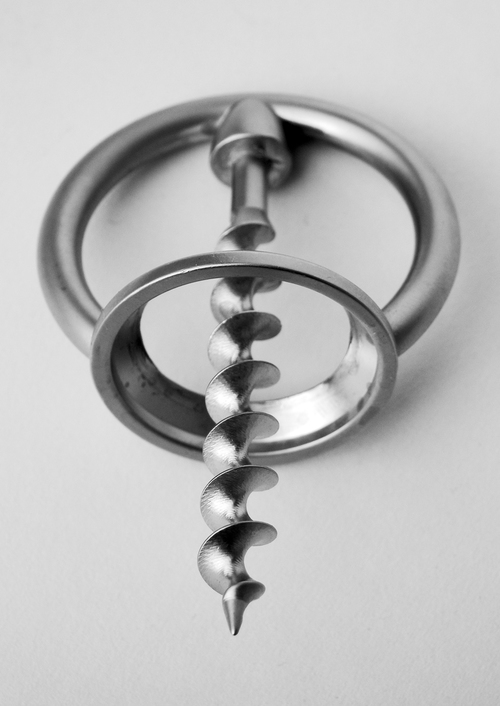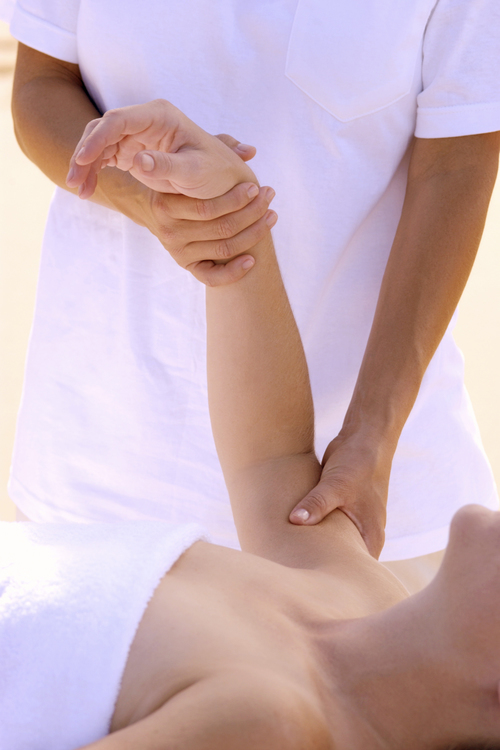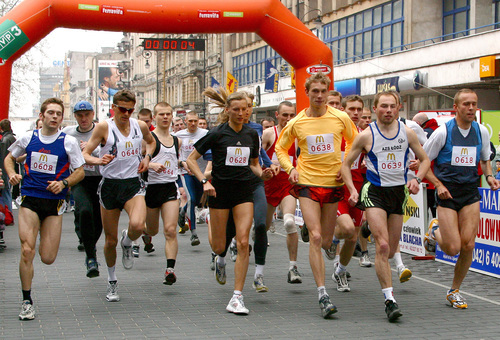Trepanation
It is hard to believe that the history of medicine regularly features people drilling holes into each other’s heads. However, this practice is one of the earliest examples of surgery. Readers may be surprised by the number of civilisations that utilised it.
The act of boring into the skull for medical intervention purposes is known as trepanation. There is evidence of it in Ancient China, Medieval Africa and Pre-Columbian Mesoamerica. There are even prehistoric cave paintings depicting it. On the surface, it might seem highly dangerous. However, depending on the era, survival rates could be pretty good.
Publications such as Sky News have occasionally reported cases of modern trepanation. In the 1970s, a filmmaker called Amanda Feilding even created a documentary where she performed trepanation on her own head. However, most professionals do not recommend the procedure due to the high risks.
If done incorrectly, the patient can be left with brain damage and be susceptible to infection. Death may be caused by skull trauma or blood loss. Furthermore, there are no verified benefits to the procedure. Proponents point to pseudoscientific reasons for why trepanation should be celebrated. Safer forms of cranial surgery have replaced it.
The Four Humours
It is surprising how far medicine has advanced in recent years. For many centuries misunderstandings about the human body caused doctors to prescribe highly unusual and ineffective treatments. For example, bloodletting was widespread during the medieval era,. The main reason for this practice was a physiological theory called the Four Humours.
It stated that there were four essential fluids found within humans. Each one affected the emotions of the patient. If a humour was imbalanced, it would lead to common ailments. The humours were thought to be blood, yellow bile, black bile and phlegm. Doctors strived to make these fluids as equally proportioned as possible. Therefore if one of them was in excess, it needed to be drained. This explains why bloodletting became such a common form of treatment. Interestingly, while this theory was extremely incorrect, it did suggest a link between body chemistry and psychology.
It cannot be overstated how influential humorism was to worldwide medicine. Even today, it has still left its mark. Phrases such as humoral immunity and humoral regulation are now used to describe hormones. However, the meanings of the words do not literally relate to the theory. It has been completely disproven.
Medical professionals did not immediately accept that the four humours were non-existent. Even during the mid-1800s, some doctors still held onto the idea. Bloodletting is far less prevalent in modern times. It is sometimes utilised when treating a small number of rare diseases. This is in contrast to the Middle Ages when it was widespread.
Becoming a Nurse
Obtaining a nursing degree is useful because graduates have a high chance of being employed by the NHS. The acceptance rate is an impressive 94% within six months of finishing the course. Some nurses can even qualify for financial support to help them start.
Nursing courses help people to understand what their role will be. It also informs them of any new policies and rules. For example, social distancing came into place after the Covid pandemic. Most importantly, training gives students hands-on experience as they get to work in hospital settings.
There is a surprising range of fields that nurses can choose to focus on. They could utilise the Guardian to learn about popular ones. Examples include adult care, disability, mental health or children’s nursing. Dual field courses give people the chance to do two options.
Every nursing education establishment will set its own entry requirements. The criteria might include having two or more A levels, as well as GCSEs in maths, science and English. Passing biology is helpful to have on the CV. Alternatively, the person could decide to complete an online course. This is ideal for anyone who wants to fit the studies around their home life.
Becoming a Doctor
If people want to enter into a noble profession, then they may consider becoming a doctor. Doing so takes an extreme amount of hard work and commitment. GPs will have excelled in academic medical courses. To attain the title of doctor requires them to spend a number of years at university.
Once their education has finished, it is time to begin working inside an actual hospital. Junior doctors are people who start their careers while still in the process of completing their postgraduate training. News outlets such as the BBC often cover the hardships of these individuals. They tend to work long hours for low pay and in very stressful conditions.
Eventually, the person will work their way up to the position of doctor. Some may wish to become a general practitioner. Others might prefer to focus on a specialist field. University gives them the opportunity to learn about all of the available options. Regardless of the specifics of their work, a doctor will often need to commit much of their own time to their career. However, the reward of helping patients will be well worth it.
Diets
The types of food that a person puts into their body will directly affect their overall health. Human beings need a wide variety of vitamins in order to be well. Neglecting these nutrients is very dangerous. The good news is that in the modern world, creating a well-balanced diet plan is perfectly possible.
Food labels will tell the person what essential vitamins the meals contain. It is necessary to come up with dishes that include vitamins A, B, C and E. Iron, potassium and zinc are also building blocks for strengthening the immune system and fighting common diseases.
In recent decades supermarkets have become full of items that are high in sugar. Consuming too much of this substance can lead to diabetes, a debilitating condition. Sufferers may need to take insulin for the rest of their lives. To avoid this, the person should opt for food products low in sugar and saturated fat. Whole grains high in fibre are a healthy option.
The health of the heart may be improved or diminished by different foods. Fruit and vegetables are renowned for their beneficial properties. Oily fish contains omega 3, a fatty acid that keeps hearts strong. Meanwhile, food that is high in salt and fat can cause heart disease if eaten regularly.
It is also wise to pick items that promote strong teeth and bones. Calcium is utilised by the body for this reason as people age. It has been linked with slowing the onset of osteoporosis. This substance is commonly found in dairy products such as milk and cheese. However, dairy may sometimes also be high in fat. Alternative options include sardines, salmon and pilchards.
Common Conditions
Those who want to enter the medical profession need to be aware of the most common diseases. Doing so will help them to identify patient ailments as quickly as possible. Once a diagnosis has been made, it is time to come up with a treatment plan.
Chickenpox is highly prevalent. It mainly affects children, but people can become infected at any age. Patients may not need to see a GP as chickenpox can get better by itself. The main symptom is a rash of itchy spots, which eventually develops into a blister formation.
When someone has a blocked nose, sore throat, headache and a high temperature, it is easy to assume they are suffering from something terrible. However, more often than not, the common cold is the cause. It is another condition that does not usually require medical intervention. Rest, plenty of water and sporadic use of over the counter remedies can speed up recovery.
In contrast, diphtheria is more dangerous. While rare in the UK, it is possible for people to catch it when visiting other parts of the world. Vaccination helps to prevent it. If left untreated, diphtheria can lead to fatal results. Symptoms include swollen neck glands, a white coating on the throat and tongue, as well as a fever.
Children with cold-like symptoms, small spots in their mouths and a rash could be suffering from measles. In the past, it was a widespread problem. Luckily, the development of the MMR vaccine keeps kids protected. Measles spreads very quickly and can lead to a plethora of severe complications in the patient.
Doctors are very likely to encounter cases of shingles at some point in their careers. This infection is well known for causing painful rashes. A headache and feeling unwell are also signs of shingles. Rashes may take several days to appear and are usually found on the chest and stomach. They tend to also be on only one side of the body.
It is vital that medical professionals are able to identify meningitis in particular. It infects the brain and spinal cord, leading to potentially life-threatening blood poisoning. The nerves and brain may be left with permanent damage. Tests will need to be run to confirm this infection within the patient.
Exercise and Health
It is undoubtedly fair to say that excessively inactive patients will often suffer a more significant number of health complications. Regular exercise is essential for staying as healthy as possible. This will become even more important as the person ages. There are a plethora of different benefits to exercise.
In recent years there has actually been an obesity epidemic. If someone consumes more calories than they burn off, it will lead to them gaining excess weight. In extreme cases, these people could end up with debilitating conditions such as diabetes. However, if they count their calories and engage in cardio, it can help them to lose weight.
Heart disease and high blood pressure will cause long term damage if left unchecked. Doctors often prescribe appropriate medication along with useful exercise options. The website Wikipedia contains plenty of information on this subject. Readers can learn about the link between cholesterol and disease, as well as how to combat it.
Fans of cardio will notice that it boosts their mood significantly. The human body is definitely meant to be physically active. Sitting around for too long can lead to negative emotional well-being. Anxiety and depression may follow. Exercise is an essential tool for staying positive. It releases endorphins to keep the person feeling happy. Some studies have even found a link between cardio and improved cognitive function.
It is a mistake to assume that extended periods of inactivity will energise human bodies. In reality, the person usually feels sluggish. When they do start to move around, their endurance and muscle strength may be diminished. Long term exercise will train the body to be more active and energetic. Oxygen and important nutrients are delivered to the cardiovascular system so that it runs as efficiently as possible.
If the person is struggling to get to sleep at night, then being more active is a viable solution. However, it is not wise to perform physical exercise too close to bedtime. Otherwise, the person can end up feeling too energised for sleep. The key is finding the hour so that they get a better and deeper snooze time.
Some patients are put off by exercise because they do not find it enjoyable. However, if they get their friends involved, it can develop into a social hobby. Inviting others for gym sessions or sports games is perfect for anyone who wants to make cardio less boring.
However, by far the most critical factor is the link between inactivity and mortality. People who exercise regularly are less likely to die prematurely. It keeps debilitating ailments at bay and improves endurance significantly. For this reason, it is common to see patients continue to stay active as they age.







